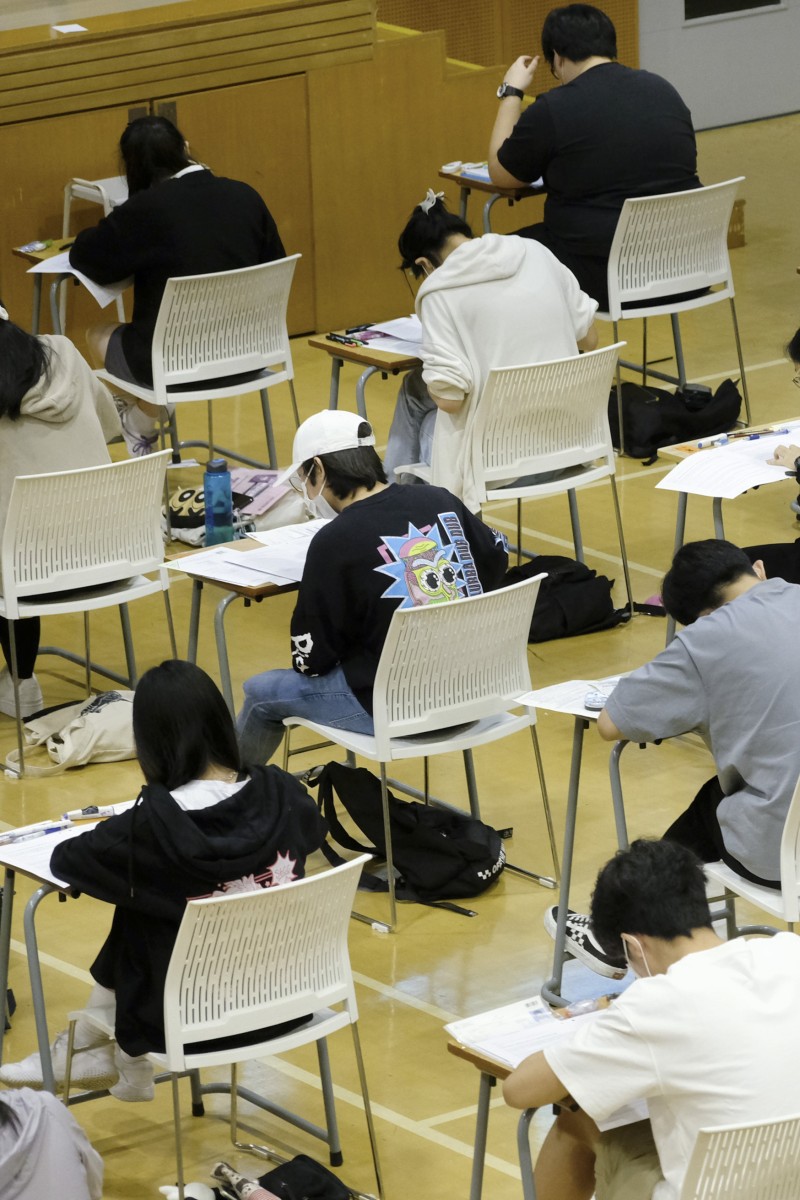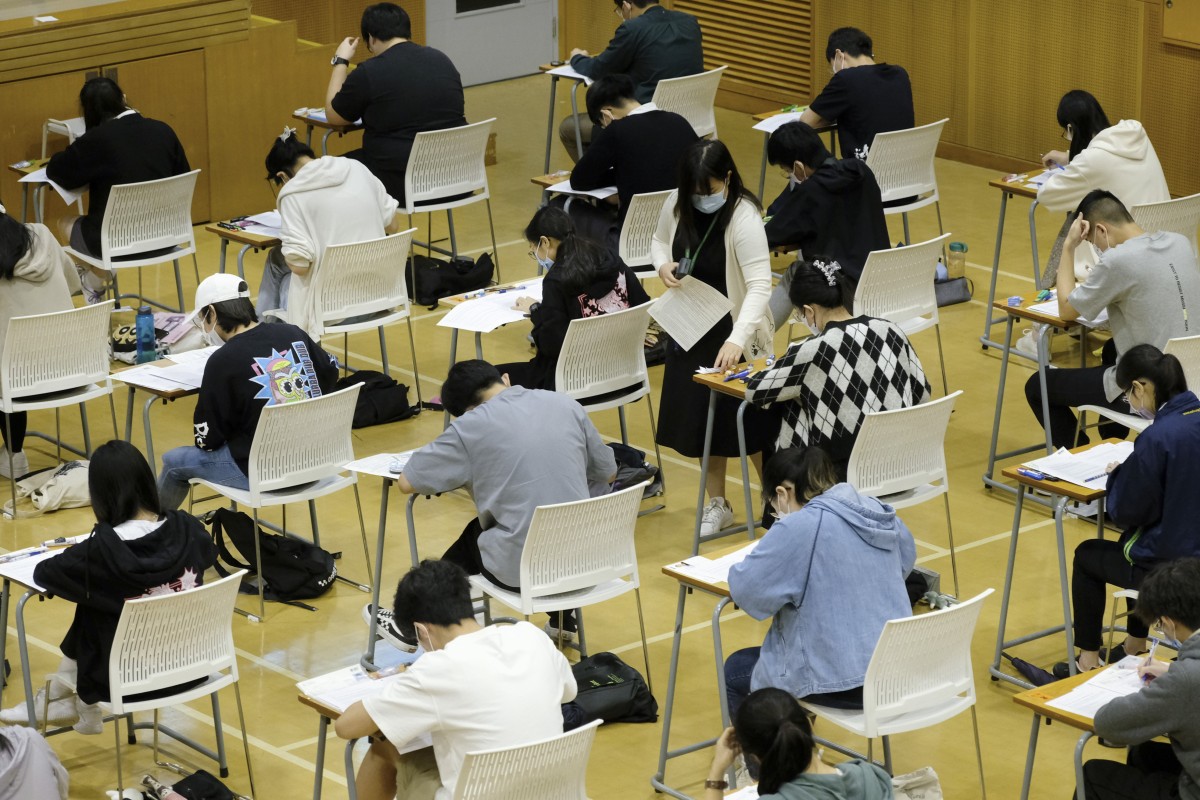
DSE 2023: History exam ‘relatively easy’ with no controversial questions about Hong Kong politics
- Tutor says topics on history paper under city’s university entrance exams this year were similar to his previous predictions and did not have many challenging questions
- Subject came under fire in 2020 because of a question that asked if Japan ‘did more good than harm to China’ between 1900 and 1945
 More than 4,500 students sat for this year’s history paper on Hong Kong’s university entrance exams. Photo: Handout
More than 4,500 students sat for this year’s history paper on Hong Kong’s university entrance exams. Photo: HandoutA total of 4,646 candidates sat for the history paper under Hong Kong’s Diploma of Secondary Education (DSE) exams on Monday, with a tutor and test taker agreeing that the previously controversial paper was “relatively easy” this year with no contentious questions reported.
The exam was one of the remaining elective subjects during the city’s month-long university entrance exam period.
According to Lori Tsang, a history tutor at Beacon College, this year’s paper was easier compared to previous years, with many questions that focused on testing students’ knowledge of different time periods.
Tutors shocked by easy geography exam, ‘highly unusual’ Chinese history paper
In 2020, the history paper created controversy because of a question that asked if Japan “did more good than harm to China” between 1900 and 1945.
It was accused of being one-sided and hurtful to Chinese people who remembered the atrocities committed by Japan during the war. The question was eventually removed by the Education Bureau.
Since then, Tsang said he believed the exam questions had become easier as the topics on this year’s paper were similar to his previous predictions and did not have many challenging questions. While there were some tricky parts, the tutor noted that overall, the paper was not difficult.
Zoe Tsang, a DSE candidate this year, agreed.
“Today’s paper is similar to past papers, especially the part on Japan post-war development and World War II in Paper 2,” she said.
According to Lori Tsang, one of the tougher parts was question 1 on Paper 1, which consists of data-based questions. Students were asked whether “the first two decades of the 20th century witnessed a new look of China”.
In their arguments, the tutor said students should have mentioned the late Qing reforms, 1911 revolution and May Fourth Movement.
“If students missed one of these, they will be deducted marks,” he said.
‘Bittersweet’ farewell to controversial liberal studies subject
The tutor said another question candidates might have found challenging on Paper 1 was question 2c, which asked students if they agreed that “Japan’s economy was progressing well from the mid-1960s to the end of the 1990s”.
“It is the first time the exam setters used a situation with an extended question type. Usually, they [ask about] ... effectiveness with extent or causes with extent,” he said.
Since students only needed to answer three out of the four data-based questions, the tutor predicted that most students would have ditched the question about Japan.
For Paper 2, where students needed to attempt two out of seven essay questions, Lori Tsang said Hong Kong politics again did not appear in the questions – this topic has not been discussed on the exam since 2020.
“It hasn’t come up for a while already,” he noted.
English paper featuring Michelle Obama’s personal essay most challenging in years
He added that it was quite rare for Japanese history to appear in both Papers 1 and 2. One of the essay questions asked candidates to comment on the statement: “The end of the second world war brought about tremendous changes to Japan.”
Out of the seven questions, the tutor said most students would opt for the ones about Hong Kong’s economic development, the second world war and Japan, and totalitarianism and the Paris Peace Conference.
He noted that he thought it had become easier to achieve the level 5** score, the highest on the exam, ever since the paper was reformed in 2021.
The DSE examinations continue tomorrow, with candidates sitting for the final elective subjects, including music and religious studies. The exam period ends on May 18, and the results of this year’s DSE exams will be released on July 19.
